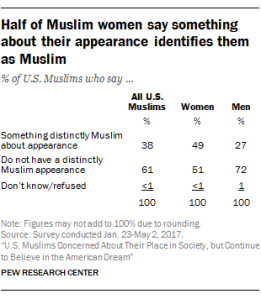
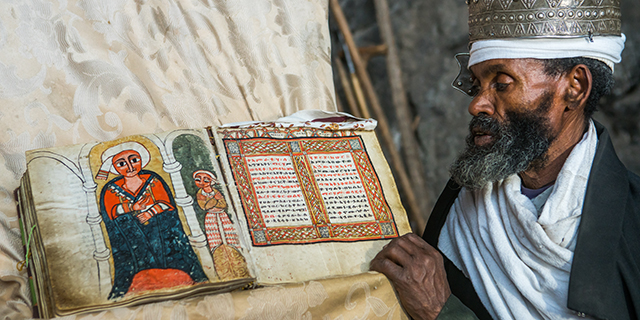
Ethiopia has the largest Orthodox Christian population outside Europe, and, by many measures, Orthodox Ethiopians have much higher levels of religious commitment than do Orthodox Christians in the faith’s heartland of Central and Eastern Europe.
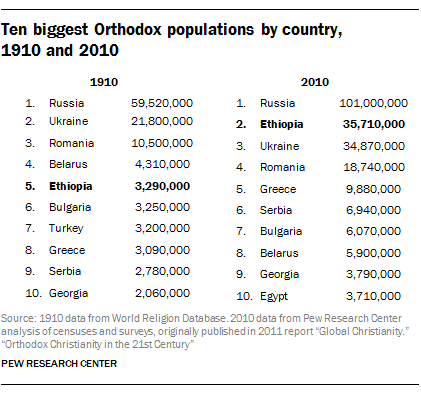
The country in the Horn of Africa has 36 million Orthodox Christians, the world’s second-largest Orthodox population after Russia.
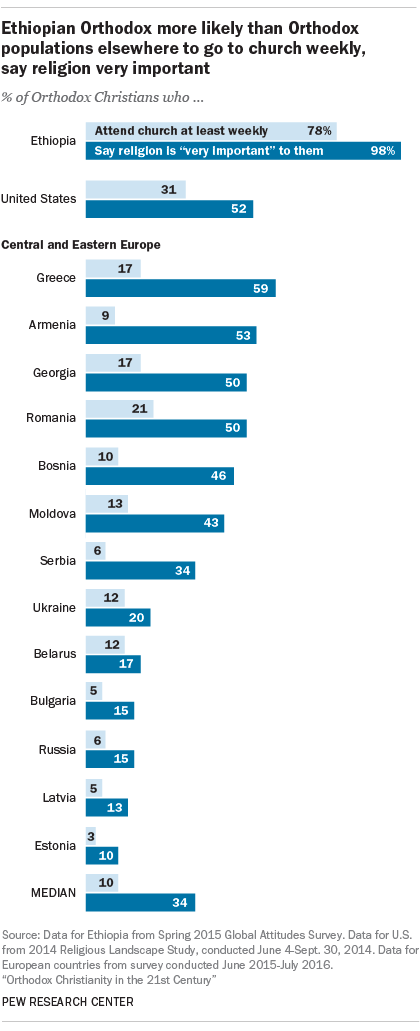
Nearly all Orthodox Ethiopians (98%) say religion is very important to them, compared with a median of 34% of Orthodox saying this across 13 countries surveyed in Central and Eastern Europe. About three-quarters of Orthodox Ethiopians say they attend church every week (78%), compared with a median of 10% in Central and Eastern Europe and just 6% in Russia.
Orthodox Ethiopians are more likely than Orthodox Christians in Central and Eastern Europe to wear religious symbols (93% vs. median of 64%), to say they believe in God with absolute certainty (89% vs. 56%), to fast during holy times such as Lent (87% vs. 27%), and to tithe (57% vs. 14%). Indeed, these gaps between Orthodox Christians in Ethiopia and Europe mirror broader differences in religious commitment between people living in sub-Saharan Africa, where religious observance is relatively high among all major religious groups, and those in more secular societies in Central and Eastern Europe.
Orthodox Ethiopians also tend to be more conservative on social issues than are other Orthodox Christians surveyed; they express higher levels of moral opposition to homosexuality, prostitution, abortion, divorce and drinking alcohol. For instance, Orthodox Ethiopians are much more likely to say that having an abortion is morally wrong than are Orthodox Christians in Central and Eastern Europe (83% vs. median of 46%).
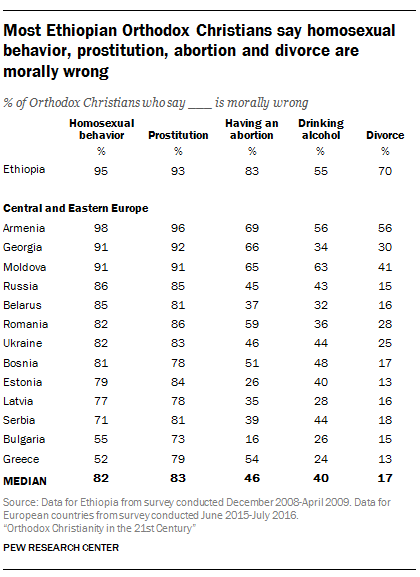
Orthodox Christians do not make up a majority of Ethiopia’s overall population: 43% of Ethiopians are Orthodox, while approximately 19% are Protestant and 35% are Muslim. Still, in 2010, the 36 million Orthodox Christians in Ethiopia made up about 14% of the world’s total Orthodox population (compared with a 76% share in Central and Eastern Europe), up from about 3 million in 1910, when Orthodox Ethiopians made up 3% of the Orthodox total. This increase is owed mainly to natural growth in Ethiopia’s population, which rose from 9 million to 83 million between 1910 and 2010.
Ethiopian Orthodoxy is part of the Oriental branch of Orthodoxy, which accounts for approximately 20% of the global Orthodox population and is not in communion with Eastern Orthodoxy, the larger branch, largely due to theological and doctrinal differences.
Note: Read more about the history of Ethiopia’s Orthodox Christians.